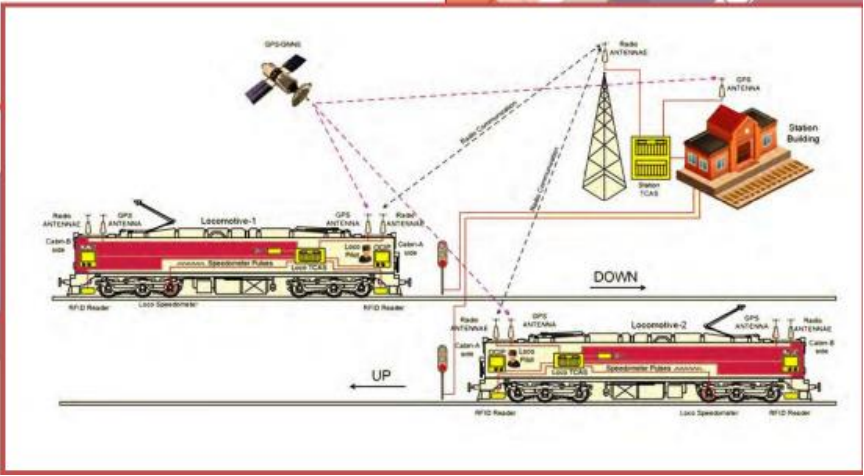ORDER 1. M/s. Medha Servo Drives Private Limited, Sy No.780,781, Jodimetla X Roads, Chowdaryguda Village, Ghatkeshar, Korremula, Medchal – Malkajgiri, Telangana-500088 (GSTIN No. 36AABCM3917A1ZY) has filed an application in FORM GST ARA-01 under Section 97(1) of TGST Act, 2017 read with Rule 104 of CGST/TGST Rules.
2. At the outset, it is made clear that the provisions of both the CGST Act and the TGST Act are the same except for certain provisions. Therefore, unless a mention is specifically made to any dissimilar provisions, a reference to the CGST Act would also mean a reference to the same provision under the TGST Act. Further, for the purposes of this Advance Ruling, the expression ‘GST Act’ would be a common reference to both CGST Act and TGST Act.
3. It is observed that the queries raised by the applicant fall within the ambit of Section 97 of the GST ACT. The Applicant enclosed copies of challans as proof of payment of ₹ 5,000/- for SGST and ₹ 5,000/- for CGST towards the fee for Advance Ruling. The Applicant has declared that the questions raised in the application have neither been decided by nor are pending before any authority under any provisions of the GST Act.
4. Brief facts of the case:
The applicant Medha Servo Drives are manufacturers of electronics equipments for locomotives and coaches for Indian Railways and Metro Railways. They have submitted that they have entered into contract with south central railway for design, supply, installing, testing & commissioning of train collision avoidance system in locomotives. That as per the agreement they have to supply multiple items and provide services including annual maintenance services with the service code 9954.
The applicant is desirous of ascertaining whether their supplies made for the above purchase order amounts to composite supply and the rate of tax on the same.
Hence this application.
5. Questions raised:
1. HSN/SAC classification?
2. GST rate applicable?
6. Personal Hearing:
The Authorized representatives of the unit namely Sri K. Lokesh, CA & AR attended the personal hearing held on 06-08-2021. The authorized representatives reiterated their averments in the application submitted and contended as follows:
1. That they have entered into a contract with South Central Railway for design, supply, installation, testing and commissioning of on board Train Collision Avoidance System (TCAS) equipment’s in locomotives and trackside TCAS equipment at station/LC/IB location along with associated works for Train Collision Avoidance System (TCAS) in MUE-SC-GWD-DHNE-FTL section (612km) and 112 locomotives of SC Railway-Package A.
2. That as per the agreement they have to supply multiple items and provide various services including annual maintenance and therefore they request to clarify as to whether the scope of work is covered under the composite supply of works contract service as defined under Section 2(119) of the CGST Act and accordingly whether the rate applicable under is 12%.
7. Discussion & Findings:
The applicant is seeking clarification regarding the classification and tariff on TCAS equipment in Railways.
As seen from the letter of acceptance (LOA) issued by south central railway dated: 13.11.2019 the contract is for design, supply, installation, testing and commissioning of onboard TCAS equipment in locomotives and track side. The LOA also contains schedule of quantities mentioning various items to be utilized quantity and value wise in it. There is also a payment schedule for the contract. There is a specific clause 6 regarding GST which mentions that the contractee i.e., south central railway shall reimburse the GST if a higher rate is determined even after completion of the contract.
The Ministry of Railways, Government of India have published a handbook on Train Collision Avoidance System (TCAS) in Apr’2021 wherein the composition and working of the TCAS system has been given in detail. It is expressively stated that this system has been designed and implemented to prevent ‘Signal Passing at Danger (SPAD) cases, unsafe situations arising due to over speed and train collisions in station as well as block sections’. It is mentioned in the introduction to overview that this includes automatic break application and display of information like speed, location, distance to signal ahead, signal aspects etc., in the loco pilots cabin and generation of auto & manual SOS messages from LOCO in case of emergency situation.
In the system overview of this handbook, it is seen that the entire system is based on signaling equipment and RFID tags. The principal goods in the system is electrical signaling equipment enumerated as HSN 8530 i.e., ‘Electrical signaling, safety or traffic control equipment for railways, tramways, roads, inland waterways, parking facilities, port installations or airfields’.
The illustration of the working of the system based on signals is available in this handbook in the following diagram:

As seen from the description and illustration, supply of this system is a naturally bundled supply of various goods working in unison to achieve a single purpose of railway safety through signaling etc., Therefore the supply of this system to south central railway under a contract has all the attributes to make it a composite supply.
Composite supply is defined in the CGST Act in Section 2(30) as follows:
“Composite supply” means a supply made by a taxable person to a recipient consisting of two or more taxable supplies of goods or services or both, or any combination thereof, which are naturally bundled and supplied in conjunction with each other in the ordinary course of business, one of which is a principal supply.
Illustration: Where goods are packed and transported with insurance, the supply of goods, packing materials, transport and insurance is a composite supply and supply of goods is a principal supply.
As seen from the above definitions a composite supply is essentially a naturally bundled supply where two or more different supplies invariably exist along with each other. As against this a mixed supply is a bundled supply is not a bundled supply where the goods / services though supplied together are distinct and separately identifiable. However a supply can be a mixed supply only if it is a single price.
The Hon’ble High Court of Kerala in the case of Abott Health Care Pvt. Ltd., (2020) 74 GSTR 37 (Kerala) held that a composite supply must take into account supplies as affected at a given point in time on “as is where is” basis.
Therefore a naturally bundled supply should possess the following attributes (as mentioned in Education Guide on Taxation of Services published by CBE & C on 20.06.2012 at Para 9.2.4):
a. There is a single price or the customer pays the same amount, no matter how much of the package they actually receive or use.
b. The elements are normally advertised as a package.
c. The different elements are not available separately
d. The different elements are integral to one overall supply – if one or more is removed, the nature of supply would be affected.
Further the illustration in the definition clarifies the context of composite supply. As seen from the illustration the supply of service i.e., insurance and goods go alongside each other. As against this the illustration given in the context of mixed supply clearly indicates that each of the items therein can be supplied separately and are not dependant of any other.
The Hon’ble Supreme court of India in a catena of case law has ruled that illustrations in a statute are part of the statute and help to elucidate the principle of the Section (Dr. Mahesh Chandra Sharma Vs Smt. Raj Kumari Sharma – AIR 1996 SC 869). Therefore a composite supply should be similar to a supply mentioned in the illustration to the definition in Section 2(30), where two or more taxable goods or services are supplied along with each other to constitute a composite supply.
Therefore in view of the above discussions the supply made by the applicant against the letter of acceptance (LOA) of the South Central Railway is a composite supply and the rate of tax applicable is the rate at which the principal supply has to be taxed i.e., Electrical signalling equipment with HSN code ‘8530’
This commodity was made taxable at the rate of 9% under CGST & SGST respectively vide Notification No. 41/2017 dated: 14.11.2017. Therefore the supply of Train Collision Avoidance System (TCAS) is taxable at the rate of 9% under CGST & SGST respectively.
8. In view of the above discussion, the questions raised by the applicant are clarified as below:
Advance Ruling
| Question Raised | Advance Ruling Issued |
| 1. HSN/SAC classification? | HSN is ‘8530’ |
| 2. GST rate applicable? | 9% on CGST & SGST respectively. |
 Prices of BUSY Increasing from 1st June, 2024. Click Here
Prices of BUSY Increasing from 1st June, 2024. Click Here


